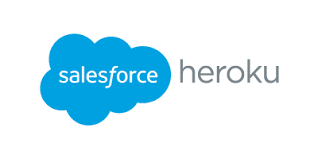Salesforce Modernizes Heroku
Salesforce Modernizes Heroku PaaS with Kubernetes, .NET, and More Salesforce is rolling out a significant upgrade to Heroku, its popular Platform-as-a-Service (PaaS), to better align with modern developer needs. Key enhancements include support for Amazon Elastic Container Registry (ECR), AWS Global Accelerator, Elastic Kubernetes Service (EKS), AWS Graviton processors, and AWS Bedrock. The revamped platform, dubbed the Heroku Next Generation Platform, was unveiled at the AWS Re:Invent 2024 conference. While some features are in public beta, Salesforce plans to fully release additional capabilities by 2025. Catering to the Modern DeveloperHeroku’s overhaul reflects the growing dominance of Kubernetes and the increasing demand for AI-enabled applications, including autonomous ones built in Salesforce’s Agentforce. Rebecca Wettemann, founder of Valoir, notes that these trends required Salesforce to evolve Heroku to remain competitive in the PaaS market. Kubernetes, for instance, is widely used for app containerization across clouds, while AI applications are becoming a focal point for many developers. “The update broadens Heroku’s appeal to developers who rely on Kubernetes or are building AI applications,” Wettemann said. Another notable addition is support for open telemetry, a standardized approach to monitoring app performance. Developers can now stream real-time metrics such as app health and container logs into their preferred visualization tools. “This integration offers unparalleled flexibility for our customers to work with a wide ecosystem of telemetry collectors,” said Gail Frederick, Heroku’s CTO at Salesforce. Introducing .NET SupportOne of the standout updates is the inclusion of .NET, a widely used open-source framework. Developers can now use .NET languages such as C#, F#, and Visual Basic alongside Heroku’s existing support for languages like Python, Ruby, Java, Node.js, and Scala. This strategic move aligns Heroku with a broader audience, especially developers familiar with Microsoft’s ecosystem. “Heroku is all about developer choice,” said Frederick. “Adding .NET ensures we continue to serve diverse needs.” Streamlining Development and DeploymentHeroku aims to simplify app development by automating infrastructure management and lifecycle tasks. “Heroku is the platform developers turn to when they need things to work without thinking about infrastructure,” said Adam Zimman, Senior Director of Product Marketing at Heroku. The platform abstracts complex deployment steps, such as configuration, provisioning, and autoscaling, enabling developers to focus on coding and innovation. Apps are deployed as pre-packaged “slugs” that run on Heroku’s dynos, isolated Unix-based containers. Developers can scale their apps dynamically by adding or removing dynos via the platform’s management interface. Efficiency Gains for BusinessesZimman highlighted the efficiency benefits of Heroku’s approach, projecting up to a 40% boost in developer productivity and a 30% reduction in developer expenses. “By taking care of the heavy lifting, we enable businesses to deliver applications faster and more cost-effectively,” he explained. Heroku also offers over 500 pre-built add-ons and build packs, covering functions like messaging, database management, and email services. These integrations provide additional flexibility and speed up the development lifecycle. Scaling Beyond StartupsWhile Heroku is often associated with startups, Salesforce has scaled the platform to accommodate enterprise-grade applications. “Heroku now evolves with your business,” said Chris Peterson, Senior Director of Product Management at Heroku. The platform has powered over 13 million applications and 38 million managed data stores since its launch in 2007. Many Salesforce applications also run on Heroku, leveraging deep integrations to extend the Salesforce ecosystem seamlessly. Heroku’s pricing starts at $7 per month for a basic plan and scales up to $40,000 per month for enterprise-grade solutions, ensuring it meets the needs of organizations of all sizes. With these updates, Heroku continues to position itself as a go-to platform for developers, enabling faster time-to-market, reduced operational complexity, and a better overall development experience. Like Related Posts Salesforce OEM AppExchange Expanding its reach beyond CRM, Salesforce.com has launched a new service called AppExchange OEM Edition, aimed at non-CRM service providers. Read more The Salesforce Story In Marc Benioff’s own words How did salesforce.com grow from a start up in a rented apartment into the world’s Read more Salesforce Jigsaw Salesforce.com, a prominent figure in cloud computing, has finalized a deal to acquire Jigsaw, a wiki-style business contact database, for Read more Service Cloud with AI-Driven Intelligence Salesforce Enhances Service Cloud with AI-Driven Intelligence Engine Data science and analytics are rapidly becoming standard features in enterprise applications, Read more






